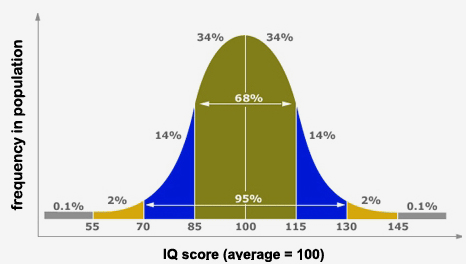
Why American Education is "Failing"
Richard A. Lawhern, Ph.D.
October 2016
We hear a lot these days about the "dumbing down" of American education. Commentators lament a time in which educational standards were much higher than they are today -- a time when high school graduates actually knew something about the world around them, or had meaningful job skills. Media announcements point out that US students now rank 26th in the world in academic achievement. We are urged to "re-think high school". However, even the relatively few folks who view the Public Broadcasting System tend to sigh and move on, without quite asking the important questions: "Re-think how? Revise education how?"
I'd like to suggest that in real ways, American education is indeed failing us. But not for the reasons many of us assign. There is a LARGE dirty​ secret among educators and those who set educational funding policy in the US. Most parents don't want to know that secret, for it is profoundly threatening to their world views and expectations.
The secret -- in the simplest terms -- is that we are asking education to do the impossible. We are asking our teachers not only to inform our kids about the world where they live, but to actually make them smarter. And that ain't gonna' happen.
Perhaps no subject in contemporary life has been studied more than the nature and varieties of human intelligence. But at times I despair of ever seeing such studies applied in meaningful ways. We just don't want to hear what we desperately need to hear: we live in a world where success can no longer be defined in terms of college graduation. Large numbers of the kids whom we send to college are ill-prepared to do well there. And the exposure they've had in high school is only one of the reasons why this is true. An even larger reason is that they just aren't mentally quick enough or subtle enough to do well in the highly complex learning which is necessary to master modern technology.
We've all heard of the term "Intelligence Quotient" (IQ). But many of us don't really know what it means. IQ is a measure of our ability to read, to understand, to remember, and then to apply knowledge. Despite the pretensions of modern political liberals, people are NOT created equal in this measure. There is famously a "bell curve" of intellectual abilities ranging from very dull to very bright.

Educators and psychologists design the questions in IQ tests every year, to guarantee that in any large number of tested individuals, the range of results will follow the curve above. The effects of age are mostly cancelled out. Your IQ at age 25 is likely to be within a few points of your score at age 15. Half of those tested at both ages will perform at an IQ level of 100 or lower. Half will perform at higher scores. And education doesn't change the numbers by much.
But herein lies the rub: there is nearly uniform agreement among educators that successful completion of a college education is much more likely with a basic IQ of at least 115. [Ref 1] There are of course exceptions. If an average kid is willing to bust their butt all the time and push their own abilities, they may be able to do moderately well in college. But how many kids do you know who have that level of maturity?
By design, only about 16% of all people can score at an IQ of 115 or higher. But ​in recent years, roughly two-thirds of all US high school graduates continue directly to college [Ref 2]. There is ample educational research to indicate that while some people in the 100-115 range do graduate, many will not have learned very much -- and they will not do as well in the working world as smarter individuals who do not complete college.
These days, "success" can no longer be measured in terms of a college graduation. It has much more to do with whether we can be employed; having skills which put bread on our tables and a roof over our heads. And our high schools and middle schools aren't preparing most of our young people by developing such skills.
​​Even in minimum-wage entry level service industry jobs, kids these days may need three to six months of job training at a McDonalds, before they can be turned loose without supervision to greet customers and make change behind a sales counter. Light industry throughout the US is confronted with the same challenge. Apprentice programs have largely been replaced by Junior College certificate programs. But companies are increasingly training assembly line and machine operators themselves, because high school shop and trades programs have disappeared.
To correct the failures of US education, we must first recognize that it is processing many kids who lack the intellectual capacity to do well in the roles that we demand of them in college or university. We're likely going to have to replace a lot of "higher" education with skills training. We're going to have to help kids do the best they can with whatever they've got. They can't all be knowledge workers. And we don't really "need" as many college professors or liberal arts majors as we have.
Whether we will decide to wake up and smell this particularly bitter brand of coffee, remains to be seen.
[Ref 1] "Much Needed IQ Realism in the Pro- and Anti-College Movements" http://greyenlightenment.com/much-needed-iq-realism-in-the-anti-and-pro-college-movements/
[Ref 2] "Not Smart Enough for College" http://www.nytimes.com/2014/04/26/business/fewer-us-high-school-graduates-opt-for-college.html
========================
Note: this article was posted as a commentary to Yabberz.com on October 7, 2016.